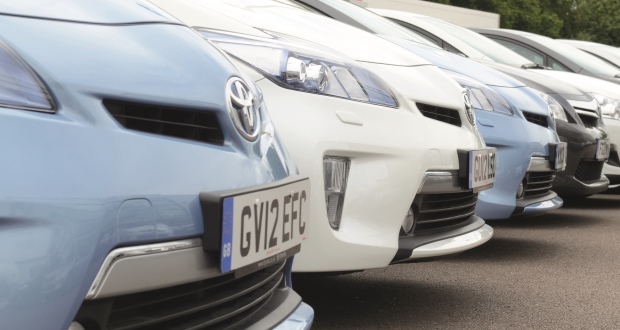 Losing a franchise is a major blow for any dealer. You will ave likely invested many years, let alone a lot of money, in the brand and suddenly you can’t use it any more. Or can you?
Losing a franchise is a major blow for any dealer. You will ave likely invested many years, let alone a lot of money, in the brand and suddenly you can’t use it any more. Or can you?
First, though, why would you want to? You cannot obtain supplies of new cars from the manufacturer any longer, but you could get hold of used ones or perhaps almost-new cars from daily rental companies. This would allow you to carry on your car-selling business almost as it was before but without having to comply with all those dealer standards.
And your workshop, even if it is stripped of special tools and the parts store has been emptied of original replacement parts, contains a lot of accumulated knowledge about how to maintain that brand of car. Advertising your business as a specialist can seem like the way forward.
But can you use the manufacturer’s trademarks to tell customers about your specialisation? Trade mark law gives you some rights to do so, but you have to start by looking at your dealer agreement.
It is likely to contain extensive restrictions on the continuing use of the trademarks which you have been allowed to use during the term of the agreement. You might be able to challenge that restriction, although it won’t be easy and it certainly won’t be cheap.
If the terminated agreement isn’t a problem, what does trade mark law allow you to do? Anyone who can show that it is necessary to use a trade mark to indicate the purpose of goods or services can do so, provided that use is in accordance with honest practices in industrial and commercial matters. There are two obstacles to overcome: the use has to be necessary and it has to be fair.
What is necessary to indicate purpose is a matter of looking at the trademarks concerned. It would be absurd to tell a garage that they could not use the name of the marque in telling customers why they might want to take their cars there. But it’s one thing to say you are a BMW specialist, quite another to put the roundel on the sign above your front door. That cannot realistically be called necessary.
Nor is it likely to be considered honest. In a 1999 case involving a Dutch BMW specialist, the EU Court of Justice said that he could use the BMW trade mark in order to describe the services he offered, provided he did not do serious damage to the carmaker’s reputation or lead the public to believe that he was a BMW authorised dealer.
Using BMW’s trade mark in advertising that was otherwise fair and honest might lend an aura of quality to the business, but this alone did not give the manufacturer the right to stop it. It was not the court’s job to apply this to the facts, but it seems clear the importer was within his rights to use the BMW name but not its logo trademarks.
In a UK case from 2000, Volvo v Heritage (Leicester), a former dealer could use the Volvo name in describing itself as an independent Volvo specialist, but had to go to some lengths to avoid any suggestion that it was still a member of the network.
The judge decided that the word Volvo was given too much prominence in the defendant’s signs and on its letterhead, and to make matters worse it had sent letters to clients suggesting that it
was still an authorised dealer, which meant that the honest practices defence was unavailable to it. So, the rules are probably more stringent for ex-dealers.
To reinforce what these cases tell us, another one a couple of years ago concerning an independent BMW specialist decided that the defendant committed no trade mark infringement by displaying the manufacturer’s name on the fascia at his premises. But the BMW roundel and the “M” symbol were another matter. Customers would assume that these indicated a relationship between the repairer and the manufacturer, or at least it would make them wonder about it.
If you are careful, though, there might be a way round any obstacles the manufacturer puts in your way. In December 2018, Twisted Automotive Ltd (trading as LR Motors), a Land-Rover Defender specialist, successfully opposed JLR’s application to register the trade mark “LR”. Sometimes the boot can be on the other foot.
Peter Groves is Motor Trader’s legal expert on motor retailing issues
